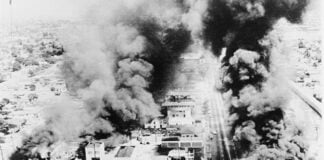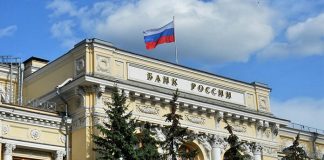Review: The Baader-Meinhof Complex Directed by Uli Edel
In selected cinemas now
When the state uses violence to repress dissent, is it permissible to use violence in reply? When a mass movement is emerging, does violence drive it forward and, when it is in decline, can violence re-ignite it?
These are some of the questions posed, but not necessarily answered, by a fascinating German movie, The Baader Meinhof Complex, nominated earlier this year for an Oscar as best Foreign Language Film.
June 1967. The Shah of Persia, a US-backed dictator, visits West Germany. Student protesters are brutally beaten by pro-Shah Iranians and the German riot police. One student is shot dead.
April 1968. With the US war on Vietnam raging, four activists, including Andreas Baader, set fire to a department store in Frankfurt as an act of anti-imperialist solidarity.
It is a time of rapidly escalating radicalism, captured in a collage of original news footage and in some faithfully recreated scenes. In one of the most exciting, student leader Rudi Dutschke addresses hundreds of activists, hammering home the need to fight imperialism. A sea of fists goes up to the chant of “Ho Chi Minh”.
It is in this intersection between bloody state violence and the rising revolutionary movement that left wing journalist Ulrike Meinhof decides that words are no longer enough and joins Baader’s group, known as the Red Army Faction (RAF).
After undergoing training at a Palestinian camp in Jordan in 1970, they carry out bank robberies, assassination attempts, and bomb attacks on the police, on US military camps, and on the Springer media empire (the German equivalent of Rupert Murdoch).
It ends in capture in 1972 and the second half of the film deals with their imprisonment and unsuccessful attempts by supporters to win their freedom through kidnappings and a plane hijacking.
How are we to interpret the Baader Meinhof experience? One thing cannot be doubted—the RAF saw themselves as anti-capitalist revolutionaries, prepared to make enormous sacrifices to overthrow a corrupt and violent system.
Even in jail, they organise to be treated as political prisoners, and use their trial to put the German state metaphorically in the dock.
Revolution
But what kind of revolution were they seeking? The film gives two pointers to an answer.
The first is the priority accorded to the armed struggle in the colonial world, especially Vietnam and Palestine (with Che Guevara’s image making a cameo appearance). For the RAF, their actions constituted the local arm of a global armed struggle against imperialism.
The problem is that even in the Third World, armed struggle is far from a winning formula. The Vietnamese broke the US military machine with jungle guerilla warfare, but the Palestinians never mounted more than a token military effort.
The camp in which the Baader Meinhof group trained in mid-1970 would have been closed within months of the Germans’ departure, as Jordan expelled the Palestinian movement in what became known as Black September. The plane hijacking that was meant to free the RAF from jail ended in failure, the jet stormed on the tarmac at Mogadishu, Somalia.
In a country like Germany, armed struggle meant operating underground in small groups. The RAF was popular with millions—but those millions could not possibly participate.
By putting armed struggle at the centre of their strategy, Baader and Meinhof cut themselves off from the rising movement, and could do no more than express frustration against “apathy” when the movement began to ebb.
The RAF could kill capitalists but they couldn’t kill capitalism.
The alternative to this Third Worldism was the classical Marxist tradition and its focus on the power of the working class and the potential for mass insurrection.
The film makes the briefest of nods in that direction, giving a few frames to the events of May 1968 in France. But even here, there is no focus on the 10 million-strong general strike. It is student radicalism that remains centre stage.
Many of the ’68 generation abandoned revolutionary politics as the movement declined, gravitating to academia and postmodernism. Dutschke joined the Greens.
The RAF stuck to their revolutionary principles. But by framing revolution as the act of a brave minority, they found themselves in a literal dead end.
By David Glanz





